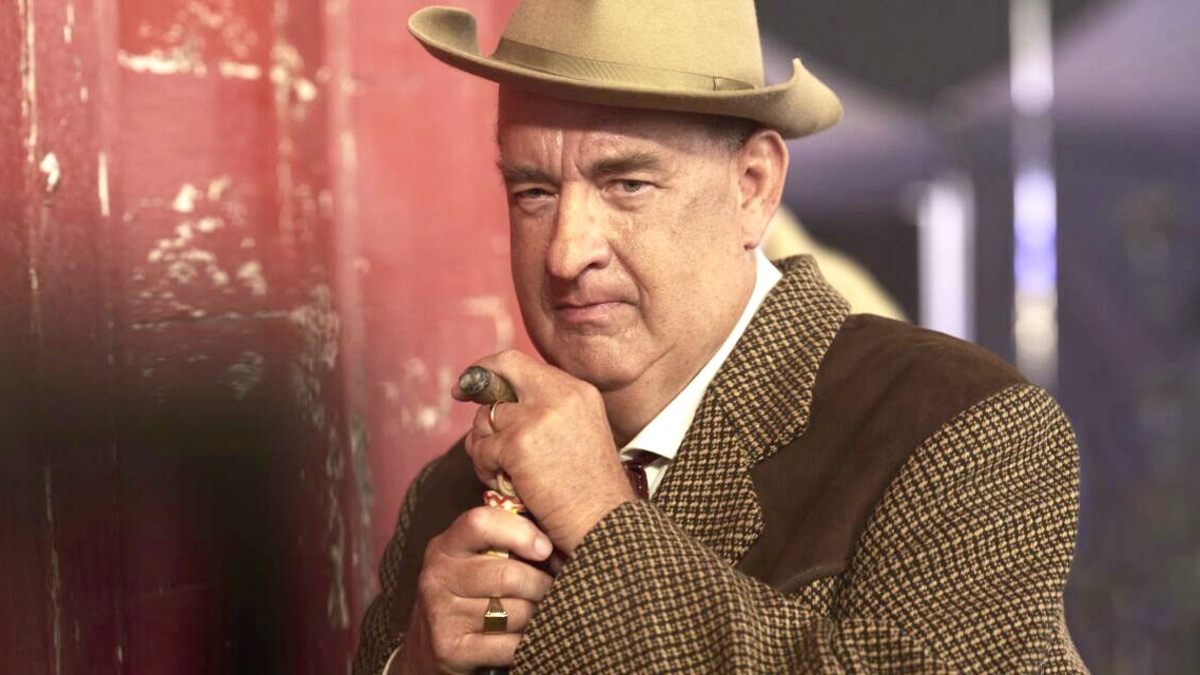Move over skilled makeup artists and creative casting: Tom Hanks, Robin Wright, and several other castmembers of Robert Zemeckis’ upcoming film Here are set to be de-aged using deepfake technology. The AI is being used extensively in the film, thanks to a deal between CAA, one of Hollywood’s premiere talent agencies, and tech firm Metaphysic. The tool in question, also named Metaphysic, is being trialled in Hollywood for the first time in the upcoming adaptation of Richard MacGuire’s graphic novel, which follows the inhabitants of a single room over many years.
In a blogpost on Jan. 31 Metaphysic — known for its headline-stealing performance on America’s Got Talent and the obscenely popular TikTok page @Deeptomcruise — revealed its tech is being used in Here, which reunites Hanks with Paul Bettany and Kelly Reilly, the team behind Oscar-winning Forrest Gump. A tweet the same day confirmed the company’s partnership with CAA, who recently hired a Joanna Popper as Chief Metaverse Officer, signalling just how seriously it’s taking the role of technology in the future of the entertainment industry.
So far, the cast and crew of Here seemed to be loving Metaphysic. Production visual effects supervisor Kevin Baillie discussed how the technology allows actors to interact with their younger selves, allowing for “…an authentic, delightful result.” Director Zemeckis, who recently worked with Hanks in Pinocchio, was even more gushing in his praise, stating “With Here, the film simply wouldn’t work without our actors seamlessly transforming into younger versions of themselves. Metaphysic’s AI tools do exactly that, in ways that were previously impossible!”
The links between Here and Metaphysic go beyond just the technology, too. Co-founder of the company Chris Ume has taken on the role of AI supervisor for the film, and his chief innovation officer Jo Plaete will be working as the Metaphysic VFX supervisor. Although CAA has been tight-lipped about what other films will be getting the deepfake treatment, there’s no doubt that this partnership will be the first of many thanks to the agency’s pull in the industry.
While the intermingling of AI and cinema seems to be working well for Here, the increasing stature of Metaphysic, and tech firms like it, have raised debates about the copyright implications of deepfake technology. In England, the performing arts worker’s union Equity launched a campaign named Stop AI Stealing the Show to highlight how AI is already affecting performer’s rights. They cite issues around loopholes in the law that allow AI firms to underpay talent, and claim that 79 percent of performers surveyed who undertook AI work felt they didn’t have a full understanding of their rights when signing their contracts.
However, it seems that CAA is already thinking ahead when it comes to these fears. Popper praised the “ethics-first approach” of Metaphysic, going on to say that “Artificial intelligence will have a transformative impact on content creation and intellectual property. CAA has always been at the forefront of new technological frontiers and we are excited to work with Metaphysic in bringing the most exciting opportunities to our clients and the industry.”
While the use of deepfake technology is still in its infancy in the film world, in other creative industries the debates are much further along. The art world has been particularly rocked by various AI scandals, and recently image superpower Getty banned AI-generated images from its platform. Advertising has swung the other way, with superstars like David Beckham and Snoop Dogg having been manipulated via deepfake technology in the past year.
Whether we like it or not, deepfake technology is here to stay. How Hollywood embraces and tries to tame it is a complicated issue that will need a lot of trial and error. Questions about fairness and authenticity are sure to become more common as the technology improves and becomes more widespread, and arguments about it will certainly get louder. For now, though, maybe we can just sit back and enjoy Tom Hanks and Robin Wright in their youth, and worry about the tech-apocalypse another day.
